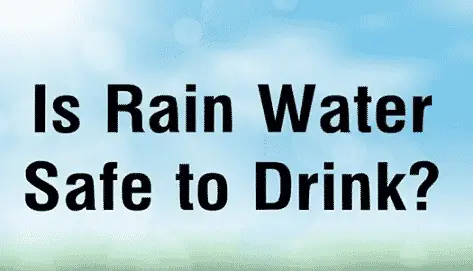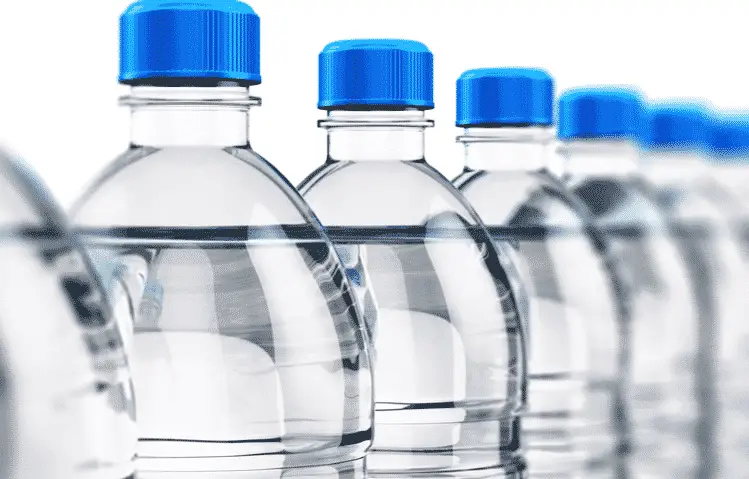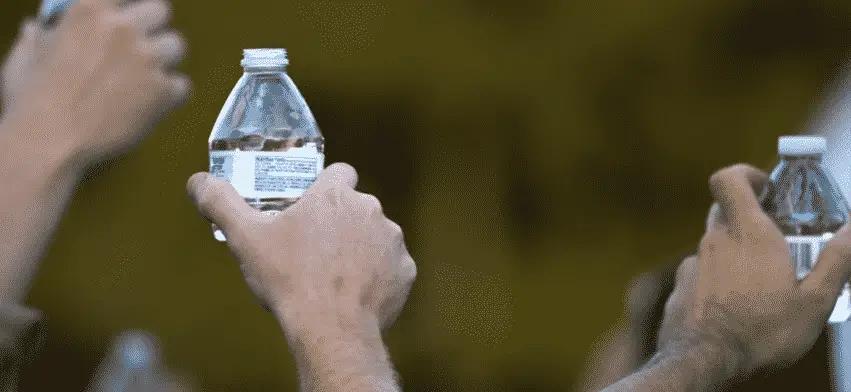Can You Drink Rain Water?
Absolutely YES and outright NO. While these questions may seem simple, not everyone has the precise and correct answers. In other words, such questions always lead to a diversity of viewpoints. Let’s start our exploration to find the answers to these questions. It’s universally recognized that water is life. Many people have the ability to survive for weeks on end without any food. This is a truth; however, without consuming water, a person cannot survive for long. You can learn more about 10 basic needs for survival in life.
Is it possible to drink rain water? If so, you are certainly on to something. The first step in making this possible is to understand how rain water harvesting works, and then you can take that next step and start collecting gallons of clean, pure water from your local area. You see, there’s an aquifer beneath most of us, which supplies the water we drink, bathe in, wash our clothes in, and for all sorts of other uses.
Rainwater harvesting involves catching the runoff that occurs when it rains. And there’s no getting around the fact that when it rains we need water. You can’t have a fully functioning ecosystem without water. So, what happens if you don’t have the storage capacity to capture the rainfall you need? Well, you end up with drought, and when you have plenty of drought, you have lots of problems.
That’s why we need to explore the science of rainwater harvesting. There are a number of different ways to get water from our local rainfall and here’s how they work. First, we can use a simple pump that captures the water. This can be a very basic device, or it can be more sophisticated than that.
Basically, there are two different approaches to catch basins. One of them involves large underground storage tanks that hold a lot of water, and it involves using electricity. The other involves small pumps that pull up water from the ground. Both of these methods are effective, but they do have their limitations. And this is where the complexity comes in.
If we use big storage tanks, we have to figure out a way to de-mineralize the water. De-mineralized water is not suitable to drink, because it contains too much of various minerals. The catch basins used for this method also have limitations, since they will begin to work inefficiently after a while. And this means that eventually, you won’t be able to fill up your water supply no matter how much you try. Also, using electricity to pump water from the ground can be a problem, since this source of power doesn’t always come on when you need it. And if it does come on, you may have to shut down your local power plant, which can have serious consequences.
Luckily, there are alternatives to these types of water catch basins. We can use passive solar techniques to capture the water that falls on our land. These passive techniques involve building huge solar panels to trap the heat that is generated by the sun. The water that is trapped is then used to water our gardens and lawns, or to heat our homes.
Passive solar techniques have been in use for years in some of the world’s driest places. The catch basins that are used in this method don’t require electricity to function. They only need sunlight, and since the sun shines every day over many different geographic locations, we can obtain an endless supply of this kind of water. Although using solar power to supply drinking water has many advantages, it does have some disadvantages as well. One of the biggest disadvantages of using such a technique is that the amount of water that you can accumulate at any given time can be limited by the amount of sunlight that reaches your region.
When we use active solar techniques, we don’t have to worry about such problems. This type of water catch basin functions with the use of photovoltaic cells, which are designed to absorb energy from the sun. When it comes to answering the question “Can you drink rain water?” with certainty, this type of system is without a doubt the best one that you could use. It also happens to be the most affordable, and it provides you with plenty of water whenever you need it.
Is Rainwater Safe to Drink?
Is Rainwater Safe to Drink? The question of whether or not water is safe to drink has been debated by people for centuries. The early Romans had one of the most successful empires in the history of human civilization. Their capital city, Rome, was covered with waterways and canals that connected different towns, giving water to homes and to city workers on the roads.
During the Roman Empire, water conveyed by waterways was often carried in wine amphors which are basically tanks with a light source and a motor powered by animal power. Is rainwater safe to drink? The Romans would probably drink gallons of wine every day, but how much do you think they paid for that?
Today, water travels by many means including bird baths, solar plexuses, trucks, jet aircraft, trains, and even on space shuttles. How much water does it take to fill a tank? Would you be willing to pay a fortune for the latest and greatest water filter? Most people would probably be horrified at the expense. But, what about the billions of gallons of water we use every day in the United States?
When considering how safe it is to drink rainwater, the first thing to consider is the source. Where did the water come from? Some rainwater comes from melting ice caps, melting snow, melting river runs, and agricultural runoff. This water then travels through our entire system and is used as a resource for drinking water, livestock watering, or industrial and municipal treatment plants.
The next consideration is the quality of the water. Are we using traditional rainwater systems or modern gravity water filters? Gravity water filters use the force of gravity to filter water. Traditional systems pass water through a pressure tank, where the water is forced to pass through filters. In the case of gravity water filters, the water is forced through a filter mesh with fine pores.
Is rainwater safe to drink? Today, we have two primary answers to this question: whether or not it’s safe to drink; and, if so, is it safe to use for drinking purposes. Today, our drinking water comes from a variety of different sources, including municipal water plants, private wells, catchment systems, and springs. Many of these sources are no more than a few hundred feet from the nearest paved road, making them “low risk” sources.
From an environmental perspective, our drinking water supplies represent a major threat. Overfilling and overflowing dams will cause flooding; non-recycled waste water is leaching into our ground water, threatening natural aquatic habitats; and, increasingly, surface and groundwater pollution poses serious threats to the integrity of our ecosystems. In addition, many chemicals used in industrial production are toxic to both humans and wildlife. Today, we must take the responsible approach and use rainwater or water from other reliable sources to satisfy our need for drinking water. The alternative is simply not acceptable.
The question “Is rainwater safe to drink?” can be answered with a resounding yes. Rainwater is a healthy option for filling our bottled water needs; it’s the safest way to store rainwater in your home. Rainwater is a valuable resource that can be easily used for agricultural and landscape purposes. It’s the most cost-effective way to grow your own vegetables, fruits, or vegetables. Our healthy society can benefit from using rainwater for many reasons, and the more we learn about the true value of our natural resource, the more we will appreciate what it means to have it available to us.
It’s not just drinking water that you can benefit from. Rainwater runoff, when directed correctly, can be used to recharge aquifers and water gardens; it can become water for irrigation and landscaping in the garden. Many homeowners are discovering that the careful use of rainwater allows them to save money on their water bills; it is a cost effective way to cool and purify the water in the home. In addition, it can be a significant source of drinking water, especially in areas where access to clean drinking water is limited.
Although there are additional benefits to using rainwater, such as the ability to beautify gardens and landscapes and the ability to irrigate, one of the main questions we all want to know is: Is rainwater safe to drink? It is safe to use as long as you have the proper installation and equipment. If you’re not sure what the right equipment looks like, call your local hardware store and ask for help. If you do have the right equipment, the benefits are tremendous; it is also the most simple and inexpensive way to gain this water.
Is rainwater safe to drink? The answer is a resounding yes! With so much to gain by implementing rainwater harvesting into your landscape and water use, there is no reason not to make it part of your lifestyle. In fact, the benefits far outweigh the costs and are far more enjoyable than purchasing bottled water and feeling guilty about it.
Is it Safe to Drink Rain Water?
The question “Is it safe to drink rain water?” may seem like a silly one. After all, rain barrels have been filling up my gutters for over a year now. However, I recently found out that there are quite a few benefits to drinking the water collected in your own gutter. This article will take a brief look at what those benefits are.
To start, let me say that I am by no means suggesting that you replace your rain water. In fact, it would be pretty irresponsible of me to suggest such a thing. What I am suggesting is that you can use the collected rain water for many things. This includes drinking, cleaning, cooking, and anything else you could possibly think of!
So, let’s jump right into the benefits of drinking collected rain water. For one thing, when you take into consideration the moisture content of the rain water, you will quickly realize that it is far superior to tap water. Many city dwellers have learned that the water from their city’s tap can actually make their skin dry, their hair dry, and in some cases, make them sick. In contrast, the water from a rain barrel consistently contains de-mineralized water which is rich in minerals.
Another wonderful benefit of rainwater is the wide range of nutrients that it contains. Water from rain barrels contains high levels of potassium, magnesium, and calcium. Potassium and magnesium are good for maintaining your potassium and sodium balance while calcium helps keep your heart healthy. Furthermore, both of these minerals are great for keeping your teeth and bones strong.
Additionally, drinking the collected water has many other benefits as well. In fact, many cities in the United States and throughout the world are required to provide their citizens with access to this exceptional source of clean, fresh drinking water. Even if you live in a small town without a water tower or well, there is bound to be rain barrels where you can enjoy your supply of fresh water and your favorite beverages.
The only negative side effect that people often notice regarding rainwater is the taste. While it may be slightly more bland than tap water, it can still taste great. If you wish, however, you may simply want to add a bit of lime or lemon juice to enhance the flavor. Regardless of how you prepare it, one thing is certain. There is absolutely no reason why you should not enjoy drinking your fair share of rainwater.
Is it safe to drink rain water in other countries? While it is certainly safe to drink rain water in the United States, it may not be safe to do so elsewhere. This is because the water can become contaminated by dirt and debris. It is possible that you could end up contracting some form of water-borne disease from drinking polluted water. Therefore, it is advised that you seek out rain water purification systems when traveling to foreign countries.
Is it safe to drink rain water? The answer is a resounding yes! Whether you are thirsty or just looking for a refreshing beverage, nothing beats the taste of rain water. With a simple installation of your own personal filter system, you can enjoy pure, clean water at home and on the go.
Is it safe to drink water out of ponds and streams? On the surface, the answer would seem to be yes. After all, these types of water sources are considered to be naturally safe. However, it would be wise to invest in a water purification system so that you can be sure that you are consuming only safe, clean water.
Is it safe to drink rain water if it has been run through a reverse osmosis system? Sadly, this type of purification is not effective with polluted water. As a matter of fact, many researchers believe that it is not even safe to drink. In order for this method to remove toxins, it would have to run at full blast on your water. This would effectively destroy all bacteria in your water, as well as any beneficial naturally occurring minerals.
Is it safe to drink rain water? You definitely should not, and the safest way to ensure that you and your family remain healthy is to install a home water purification system. With a high quality filter, this type of system will help ensure that you are consuming pure water, and you will never have to ask the question, “Is it safe to drink rain water?”



